August 2023 proved to be a productive and eventful month for Nautical Manufacturing and Fulfillment. While Nautical was successful in completing some big internal initiatives and in creating exciting new partnerships for the future, Nautical was also able to host an industry expert who provided consultation related to improvement of system throughput while identifying and leveraging constraints. While conventional wisdom may lead some to believe that focusing on better uses of materials, time, and money are the best ways to increase efficiency, there’s very good emerging evidence that a focus on catalyzing human capital yields better results. The industry expert Nautical had the pleasure of hosting drove this point home, citing the profound importance of viewing human capital as a company’s greatest untapped resource. This isn’t a new concept – the World Economic Forum has outlined the same phenomenon. But while it seems to be a consensus understanding in theory, high turnover rates within the warehousing, transportation, and manufacturing industries suggest it’s more a difficult concept to put into practice. As the industries in mention move more toward sustainable solutions to materials and energy, it would do well to move toward sustainable solutions to labor as well.
So as the inevitable sands of time methodically push us toward another Labor Day, it seems worth exploring how Nautical goes about turning (a) the theory of maximizing the potential of human capital into (b) the practice of it as doing so helps pave the way toward a more sustainable workforce.
Maximizing human capital to move towards a more sustainable workforce
First and foremost, the daily practice of creating platforms for employees to have input into how they do their jobs is crucial. This practice was a major focus point of the consultation Nautical received this month and the practice immediately yields positive results, both in culture and in outcome. Specifically, the people closest to a given operational challenge are likely to have suggestions to process improvement that no one else in the company can have. When frontline employees are given an opportunity to shape the processes they’re asked to execute, they’re much more likely to be invested in a positive outcome and the process itself is much more likely to have accounted for all the different potential roadblocks that obstruct a path to success.
Second, it’s vital to recognize that an employee’s productivity inside the workplace is directly tethered to an employee’s health outside the workplace. In other words, nothing happens in a vacuum so when a person experiences increased stressors in their personal lives, it inevitably manifests in how they show up to work. Ultimately, for the company to best serve our customers, we want and need our colleagues to be the best versions of themselves each day. But that’s not likely to be the reality if someone is experiencing turmoil and/or unable to have their basic needs met outside of work. Admittedly, the balance that needs to be struck here can be difficult. While we care about every individual that works for us, we also must take into consideration the wellbeing of the entire company. That said, benefits like Employee Assistance Programs, flexible schedules, and competitive pay can help support stability for our employees.
Third, and relatedly, supervisors and managers who listen are a key unlock to employee engagement. Often times, people just want to be heard. ‘Being heard’ is not synonymous with being agreed with. But when people feel heard, and when a logical explanation is provided for why something they think should happen isn’t going to happen in exactly the way they’d like, the odds of that person continuing to be engaged toward achieving a common goal increases exponentially. The old cliché appears to be as true now as it’s ever been: people take jobs with companies…. but they quit their direct supervisor. This outcome shouldn’t be surprising when considering that only 1 in 10 people may be attuned to be good managers.
How Nautical Finds and Nurtures Good Managers
In order to find and/or nurture those good managers, Nautical has invested in multiple ways to both identify leaders in the company and then provide those individuals with professional development related to their leadership skills. On the first step, Nautical Manufacturing and Fulfillment has its departmental teams complete the Clifton Strengthfinder assessment. While this assessment isn’t the only of its kind nor is it the sole means by which Nautical sets about identifying people within the company who would excel in management positions, we’ve found it a useful framework upon which to start the discussion. It’s also proven a useful tool to help teams made up of a diverse array of unique individuals understand how to work with each other as a cohesive unit.
Additionally, Nautical contracts with James Glenn of Glenn and Company Consulting to provide monthly one-on-one and team leadership development with Nautical’s managers and directors. The feedback from Nautical’s leadership team about James’s work has been nothing short of fantastic. Each individual James works with comes away from the experience sharing the same basic thoughts – generally some version of feeling more entuned to their own leadership style and the feeling of having more linguistic and operational tools by which to lead people. Namely, tools by which to lead people through harnessing strengths and positive accountability. Ultimately, our managers and directors having these skills mean everything to the experience employees have at Nautical because – while some people have a natural inclination to lead others – many of us have also personally experienced authoritarian or dictatorial approaches to leadership. Those approaches often hinge on fear-based management and fear-based management often leads to deteriorating outcomes over time. For people who’ve had the experience of being led that way, if not provided with a viable alternative, they too will also fall into the habit of administering a fear-based leadership style. With the help of Glenn and Company, Nautical does its best to embed a different kind of leadership culture within its company – one based on respect and shared accountability as opposed to fear.
While we celebrate this Labor Day with our friends and families, let’s keep in mind that every single person contributing to this great nation’s economic output has a story. And we do our best when we honor and recognize those stories and when we create workplace environments that bring out the best in people. Labor costs and profit margins don’t have to be seen as zero-sum games. Rather, an adjacent path of viewing employees as assets to invest in as opposed to expenses to control can lead companies to create pathways to sustainable equitable prosperity where everyone wins.




